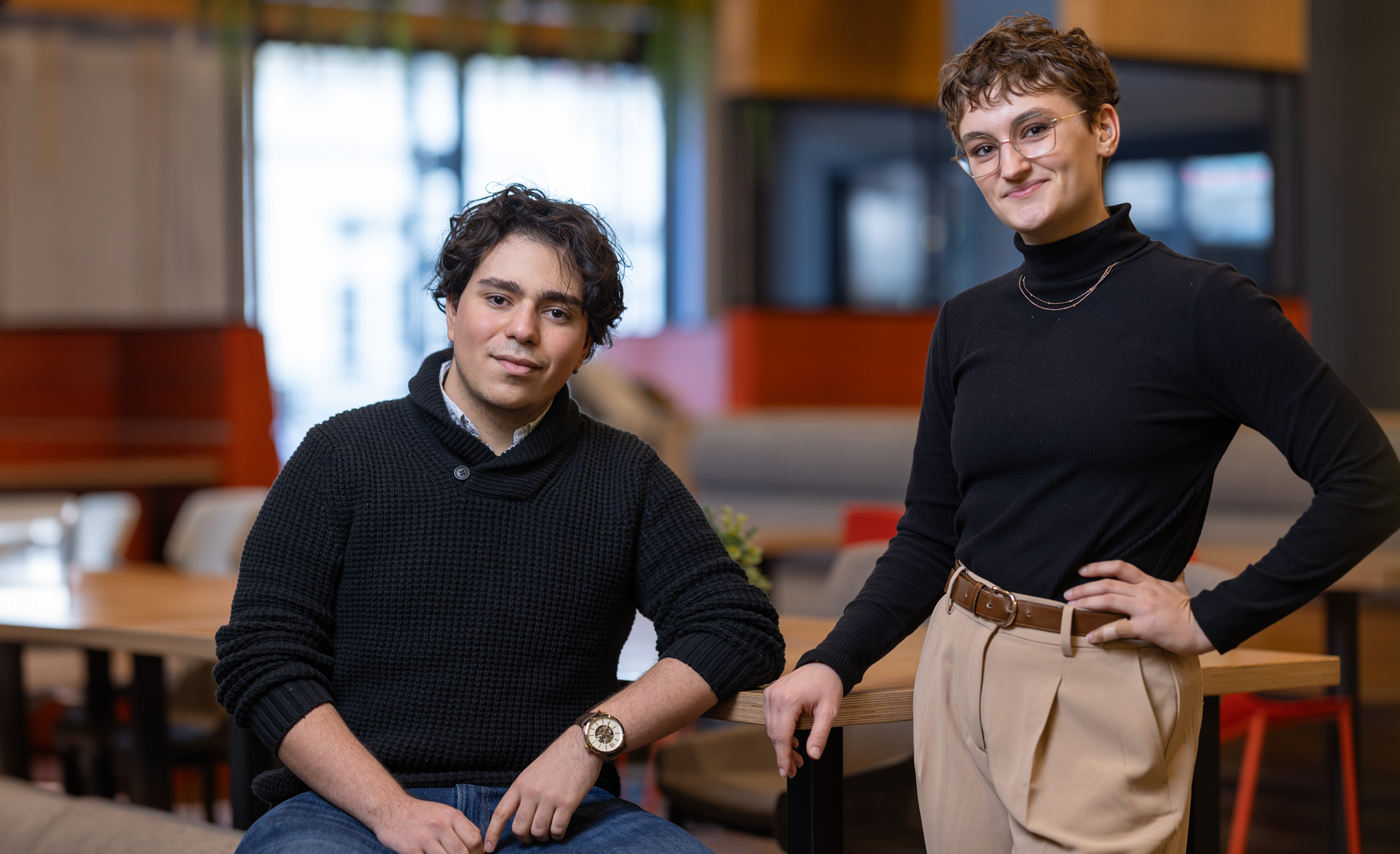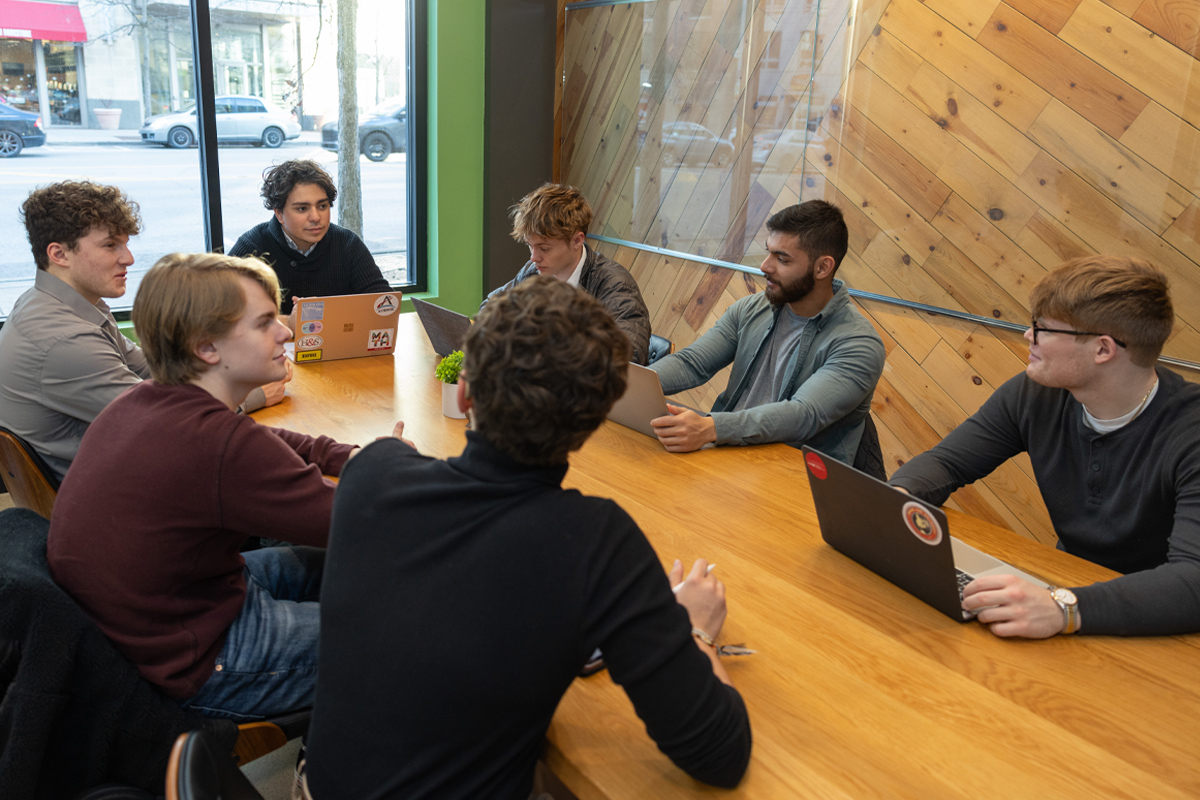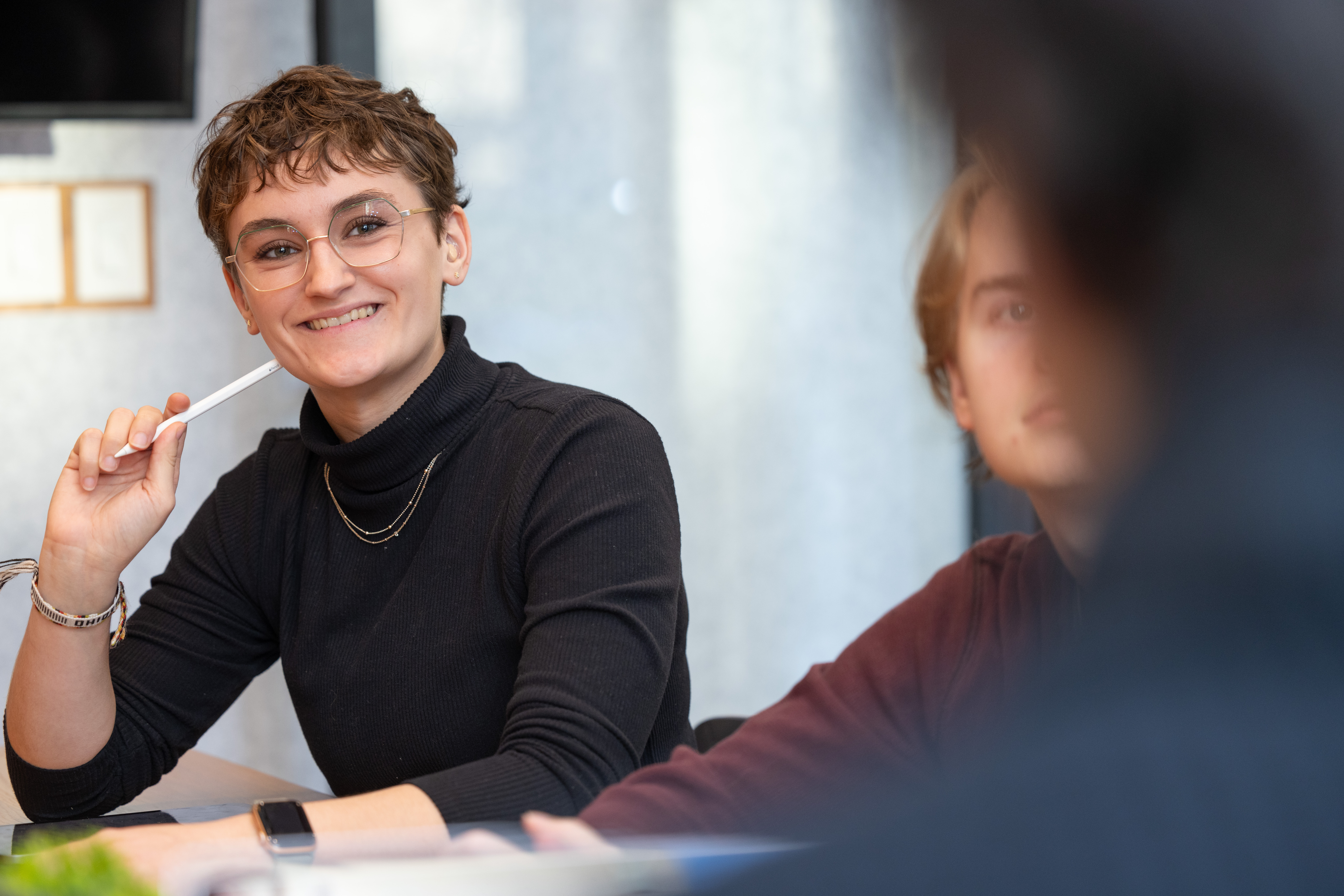These students are building AI for health care access
Buoyed by Ohio State mentorship and an international fellowship, this student venture is building technology to solve health care roadblocks.

For many, navigating the tangled web of health care systems is a frustrating maze. From finding providers to scheduling appointments to gaining insurance authorization, it can feel impossible at times.
Daniel Tcheurekdjian is using artificial intelligence to untangle the system. The Ohio State sophomore theoretical physics and math major founded the startup Aleph Innovations about a year ago to build AI technology that streamlines the health care process by, for example, matching patients with physicians quicker.
The startup has found support on Ohio State’s campus and beyond. This past summer, it was awarded a spot in the second cohort of the President’s Buckeye Accelerator. Aleph Innovations was also selected for Intel’s startup accelerator program, Intel Liftoff. Prior to that, the Aleph team was picked for the prestigious international leadership development Millennium Fellows program.
All of these connections, according to Daniel, are pushing Aleph closer to its goal of building AI tech to smooth out the health care access process.
“The biggest flaw in the health care system is getting people in touch with the care they need. Once we’re providing care, we do an excellent job. But we have serious difficulties getting there, whether that’s navigating insurance companies or getting people into the clinic because of geographic separation. Trying to schedule a primary care visit eight months out is crazy.
“Part of the reason it hasn’t been addressed is it’s challenging. These are highly complex problems. AI provides an opportunity to erase these resource problems to get people to the places they need to be to receive care. That type of access and development is what we do. Advancing these technologies will make an impact on people’s lives.”

This past summer and autumn, Daniel and his team gained valuable insights through the Millennium Fellowship.
“We had the opportunity to speak with leaders in industries all around the world, international actors and organizations we wouldn’t have had the opportunity to work with otherwise.
“Working with officials from the United Nations, for example, working with national/international think tanks, working with people on the front lines in the fight against famine, working with so many incredible people and seeing how they were leveraging technology was incredibly valuable.”
A major payoff of the fellowship was developing a critical understanding of how to make an impact on people’s lives.
“The most useful part was understanding the scope and breadth of the challenges we were trying to tackle required techniques in social development. The ability to develop a more robust understanding of the approaches already being used to address these problems and learning directly from the people doing it.
“When you’re building technology, especially for something that affects a core part of people’s lives, it’s very tempting from the technical side of things, to see a problem, invent a solution and build it. But that type of top-down approach to solving systemic issues does not work if you don’t engage with communities, invite them to work with you. If you don’t, you’ll never understand the actual problems plaguing these communities.
“If you are a student at Ohio State and you have a deep passion to make the world a better place, you should have the confidence to go after whatever it is you want to do. The only thing holding you back is you not believing in yourself.”
“For us, it is critical to have a positive social impact. Because we’re working in health care, the technologies we develop will have a direct impact on people’s health. And the fellowship gave us a lot of aid in building that rapport with our community because we were learning from people doing that, we were learning the techniques to engage with people and leaders in communities. When you’re focused on technical development, that engagement might not be at the forefront of your thinking but it’s absolutely essential.”
Closer to home, the Aleph team has gained massive support through the Buckeye Accelerator and at Ohio State.
“Ohio State is so great at providing mentorship and helping you build a community to succeed. The Buckeye Accelerator program has been fantastic. We’re becoming so much stronger as a unit because of this community and getting connected to the resources Ohio State and the Keenan Center have to offer, along with working with the other ventures in the cohort, connecting us to mentors with the business side of things and marketing, it’s been excellent.
“It's such an honor to be involved in this and it’s given me the confidence to help others start their own companies, help them get connected to the entrepreneurship community. Whether it’s aerospace engineering, biomedical engineering — industries very different than what I’m working in — it’s all part of being in this community. From a personal perspective it’s really encouraging to see so many people working diligently to try to build new things as entrepreneurs.”

Daniel also has plenty of advice to current and future Ohio State students.
“Ohio State is a top-tier research institution; we have serious academic talent here. And if you are a student at Ohio State and you have a deep passion to make the world a better place, you should have the confidence to go after whatever it is you want to do. The only thing holding you back is you not believing in yourself.
“Remember you are more capable than you think you are. The hardest step is being crazy enough to start whatever it is: Take a class, try out for a sports team, start a company, apply for an international fellowship, whatever the case. Many people at this university would be not only excellent at what they want to do, but they would also thrive in doing so if they only believe in themselves.”